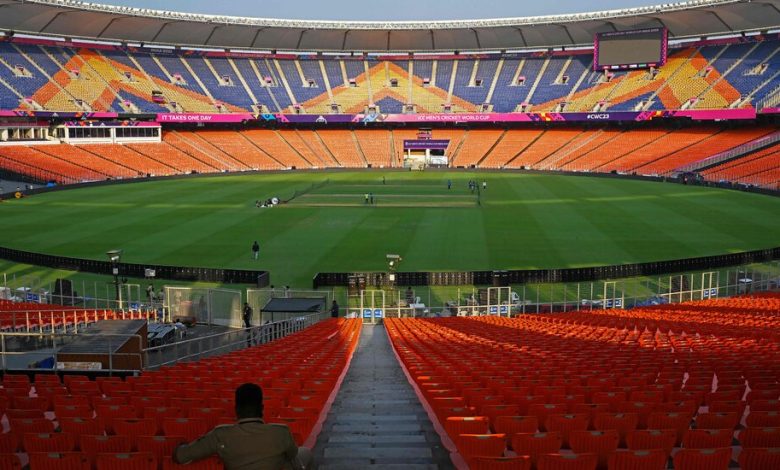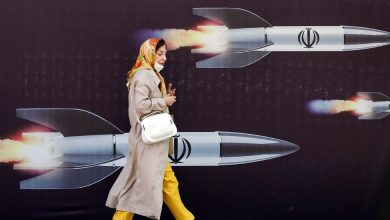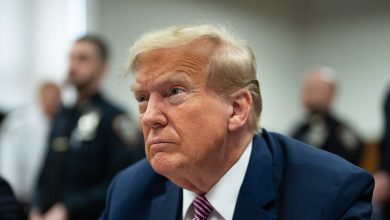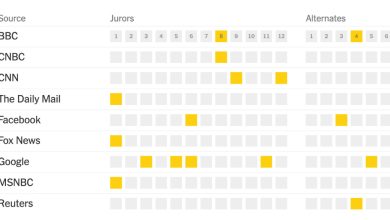A Billion Eyes on One of Sports’ Fieriest Rivalries: India vs. Pakistan

It is one of the fiercest rivalries in sports, with hundreds of millions of people tuning in every time the two teams play — a viewership dwarfing that of the Super Bowl. But when India and Pakistan meet on the cricket field, the game is often overshadowed by the icy relations between the two neighbors, which have fought several wars against each other over the last 75 years.
On Saturday, the two sides will face off in the men’s cricket World Cup in India. The match, at Narendra Modi Stadium — capacity 132,000 people — is sold out. Hotel prices in Ahmedabad, the site of the stadium, named for the vigorously nationalist Indian prime minister, shot up by as much as five times.
“It is the most hyped-up game in cricket history,” said Sheharyar Jaffri, a 30-year-old journalist and cricket enthusiast in the Pakistani port city of Karachi. “We live every ball, every run and every moment.”
But there will be few, if any, Pakistani fans like Mr. Jaffri among the large crowd, even though Karachi is closer to the stadium than New Delhi. It is hard for Pakistanis to get permission to visit India, and Pakistani fans were not issued visas for the World Cup. Only a few Pakistani journalists received travel permission, which did not come until the eve of the match, leaving them scrambling to make it to Ahmedabad in time.
In the months leading up to the tournament, it was not even clear whether Pakistan’s team would attend at all.
India had refused to travel to Pakistan for another tournament late this summer, using its outsize influence on cricket’s international governing body — India is the biggest economic force in the sport — to shift the matches to neutral venues in Sri Lanka. Pakistan, in return, warned that it might pull out of the World Cup in India, a threat it ultimately dropped.
Cricketing ties between India and Pakistan have fluctuated along with relations between the two countries since Pakistan was carved out of India in the bloody British partition of 1947. At times, India-Pakistan games, which draw equal passion on both sides of the border, have been used to break the ice when tensions have run particularly high, providing an important space for exchange.
When the two nations first met on a cricket field in the early 1950s, partition was clear in the teams’ makeup: Pakistan’s squad included players who just years earlier had played for India.
For many years, relations were patched up enough in between wars that India and Pakistan even co-hosted the World Cup in 1987 and 1996.
The latest tensions largely date back to 2008, when Pakistani militants crossed into India on fishing boats and launched a gruesome terrorist attack in Mumbai, killing more than 160 people.
Bilateral cricketing ties have remained suspended since, with Pakistani players barred from the lucrative Indian Premier League, which features the world’s best players. In the 15 years after the attack, the national teams have played each other only as part of larger global events. The match on Saturday will be Pakistan’s first in India in seven years.
India’s sports minister, Anurag Thakur, recently reiterated that despite Pakistan’s participation in this World Cup, New Delhi’s stance on resuming cricketing ties will not change “until they stop terrorism.”
In recent years, however, India’s security calculations have changed significantly. Pakistan, lost in its own political dysfunction and economic crisis, is seen as posing little significant threat. New Delhi now views China as its predominant border concern, with the armies of the two countries locked in a standoff high in the Himalayas for the past three years.
Kashmir, the restive region disputed between India and Pakistan, still erupts sporadically into violence. Despite an Indian government crackdown that has suspended democracy there for four years and added to the already heavy military presence, militants who find support and training in Pakistan continue to launch occasional ambushes.
Increased political polarization on both sides of the border has also not helped the countries’ relations.
For Mr. Modi’s Hindu nationalist base, Pakistan remains an easy populist rallying cry, even if China now poses the greater threat. Dozens of people in India have landed in prison over expressions of support for the Pakistani team. After four Indian soldiers were killed in an attack in Kashmir last month, many in Mr. Modi’s right-wing support base called for boycotting the Pakistani team.
The backlash intensified and drew in some opposition politicians after the Pakistani team was given a welcome similar to what other teams received, with a traditional dance and other festivities in their Ahmedabad hotel.
In Pakistan, which is in the grip of an Islamist militancy, expressions of support for the other side have also resulted in court cases and imprisonment.
Shahid Afridi, a former Pakistani star, faced a treason case after telling an Indian audience during a tour that he had “not got this much love even from Pakistan.” A Pakistani tailor in the country’s state of Punjab ended up in jail for raising an Indian flag, which he said he had done because was an avid fan of the India cricket star Virat Kohli.
Relations between players, however, have often been warm. Players from earlier generations often spoke of deep bonds of friendship, sharing fond memories of hospitality and late-night hotel room pranks during times when they could travel to each other’s countries more frequently.
The same is true when the two nations’ women’s teams have played each other. A selfie taken by the Indian captain, Harmanpreet Kaur, of her players posing with the Pakistani captain, Bismah Maroof, and Ms. Maroof’s baby daughter after a match last year went viral.
Gaurav Mittal, an information technology worker from the Indian state of Haryana, who is attending the game in Ahmedabad along with five friends, said the rivalry should remain restricted to the sporting field.
“India vs. Pakistan is there, and we want India to win,” he said. “But humanity is also there.”
The Indian authorities were deploying thousands of officers in Ahmedabad as a security precaution, even with fans of only one of the two heated rivals filling the stadium.
Pakistani fans who had bought advance tickets but could not obtain visas were trying to move from disappointment to planning home screenings.
Muhammad Subhanullah, a 36-year-old software engineer in Islamabad, said he had spent $36 on the tickets.
“Many people had advised me against buying match tickets because India rarely grants visas to Pakistanis. But we were hopeful,” he said. “Unfortunately, India did not want Pakistani fans to attend matches there. Our money and efforts spent on buying tickets have gone to waste.”
He said he was considering watching Saturday’s match at a screening in his neighborhood.
“It’s always enjoyable to watch it with a crowd,” he said.




